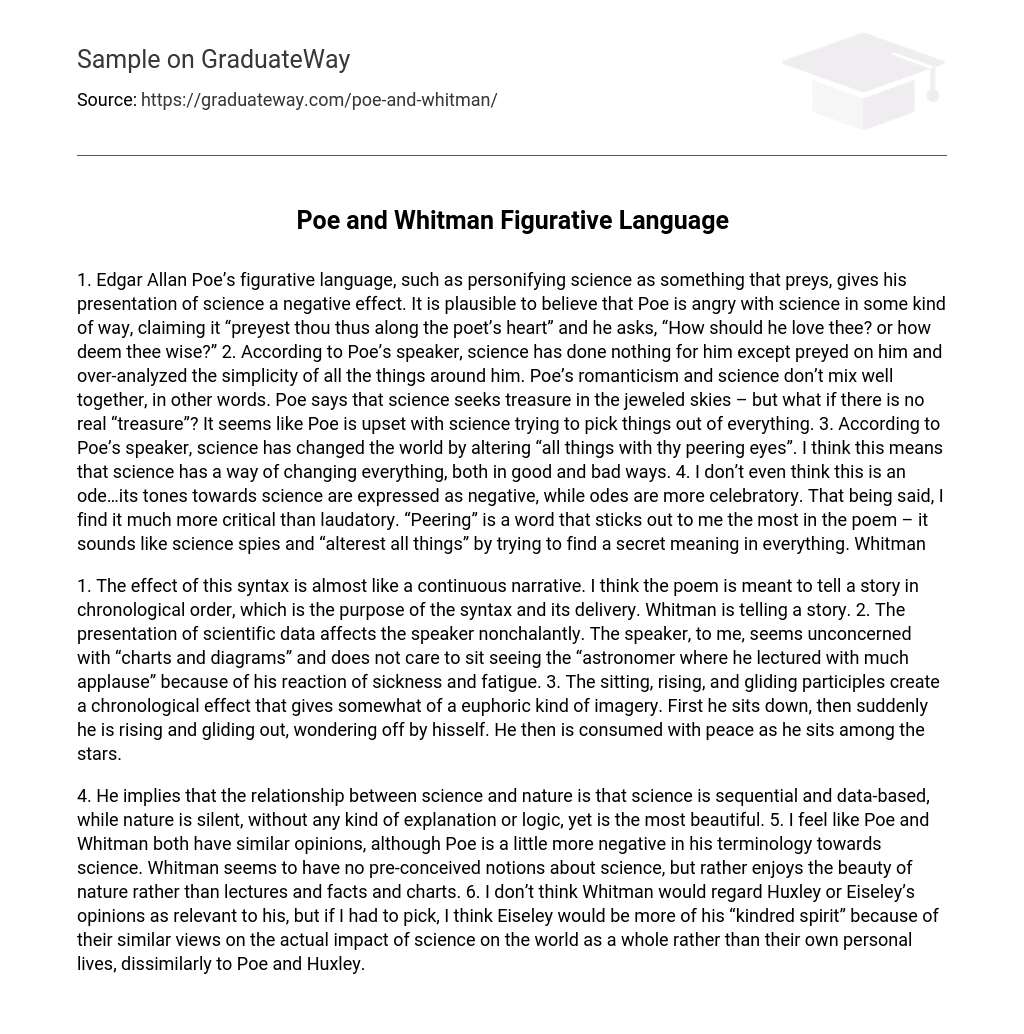1. Edgar Allan Poe expresses a negative view of science through his use of figurative language, specifically by personifying science as a predator. He appears to harbor anger towards science, questioning its worth and loveability.
2. Poe’s speaker claims that science has only brought negative consequences, preying on him and overly analyzing the simplicity of the world around him. This suggests that Poe sees a clash between his romanticism and the scientific approach. Furthermore, Poe seems displeased with science’s tendency to try and uncover hidden meaning in everything.
3. According to Poe’s speaker, science has greatly impacted the world by scrutinizing every aspect of it. This implies that science has both positive and negative effects on the world.
4. This piece does not seem like an ode as it takes on a critical rather than celebratory tone towards science. The words “peering” and “alterest all things” stand out, suggesting that science behaves like a spy trying to uncover hidden truths in everything.
Whitman
1. The poem’s syntax creates a continuous narrative, aimed at telling a chronological story, which is the author’s intention. Whitman is essentially narrating a story.
2. The scientific data presentation nonchalantly affects the speaker, who shows no interest in “charts and diagrams” or sitting through the astronomer’s lecture, as the speaker feels sick and tired.
3. The use of sitting, rising, and gliding participles creates a chronological effect that evokes euphoric imagery. Initially sitting down, then rising and gliding away, the speaker becomes engrossed in solitude among the stars.
4. The author suggests that science and nature have differing characteristics. Science is based on a sequential and data-driven approach, whereas nature lacks explanation or logic but possesses unparalleled beauty.
5. Poe and Whitman share similar viewpoints, although Poe expresses a slightly more negative attitude towards science. Whitman, on the other hand, appears to hold no preconceived notions about science and instead appreciates the beauty of nature over lectures, facts, and charts.
6. If Whitman were to consider the opinions of Huxley or Eiseley, he would likely find them irrelevant. However, if forced to choose, Eiseley might be seen as more of a “kindred spirit” due to their shared perspective on the overall impact of science on the world rather than solely focusing on their own lives, in contrast to Poe and Huxley.





